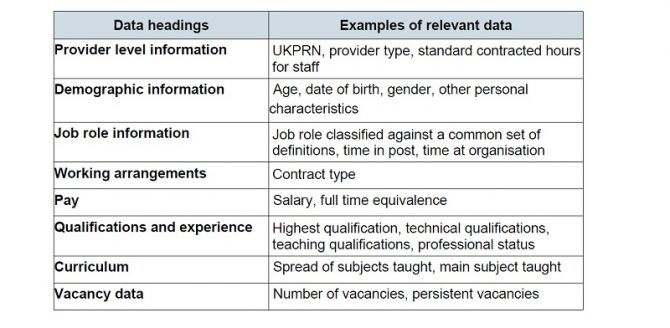Learners are “at the heart” of schools’, colleges’ and training providers’ decisions about the qualifications they offer, according to new research by Ofqual.
The finding comes just weeks after Ofsted chief inspector Amanda Spielman reiterated her concern that some colleges fill their rolls with “superficially attractive” low-level arts and media courses simply to “attract funding”.
Her comments were based on a report from November 2018 – rather than inspection reports – the findings of which were from 15 college visits and learner surveys and found “the proportion of [level 2] students who went on to employment was small”.
In Ofqual’s research, it said there is “little data available about what drives schools, colleges and training providers to choose certain qualifications over others” for their 16 to 19 year old students.
The exams regulator commissioned YouGov to conduct a survey of over 500 staff and found there are a range of factors when deciding which qualifications to offer, which can be categorised as: “students’ needs; the capacity or facilities of the educational establishment itself; and the needs of employers”.
More than nine in ten respondents said they offered qualifications based on “learner interest”, and 83 per cent said their decisions were due to the qualifications “serving as prerequisites for further study”.
Funding was the least likely driver for why providers choose to offer qualifications they do.
“The research indicates meeting students’ needs and serving their interests – either directly, or by enhancing their prospects and future employability – is a common priority across educational settings,” today’s report said.
“This shared commitment to students may prompt centres to continue offering courses, even where they are not commercially viable.”
Ofqual found that the weight different types of educational providers give to other factors “varies”.
Employer-focused drivers were, for example, were “more a point of focus” for colleges and training-providers than schools.
It adds, however, that even though funding and fees were “found to be of little importance across the survey as a whole”, it “appears to be a more frequent driver of choice” in training providers and colleges.
Phil Beach, Ofqual’s executive director for vocational and technical qualifications, said: “It is encouraging to have for the first time research evidence showing learners are at the heart of schools’, colleges’ and training providers’ decisions about the qualifications they offer.
“It is important these decisions are the right choices for learners, supporting their development and employability – factors we will consider as we progress our research in this area.
“When making such decisions, both learners and centres need access to detailed information about the range of regulated qualifications available and their value to employers.”
Spielman, who is a former chair of Ofqual, was criticised by the college sector following her claim that a minority of colleges simply try to “fill their rolls and attract funding” with low-level arts and media courses.
Writing for FE Week shortly after her comments, Association of College’s boss David Hughes said singling out courses at lower levels was “wrong and unfair”.
Responding to Ofqual’s report, he said: “This research confirms what I already knew – that colleges continue to serve students’ interests and help prepare them for the world of work with the wide range of courses they offer and the transferable skills they provide.
“Student choices are informed in many different ways, not just immediate job progression opportunities, although that is one important component.”



